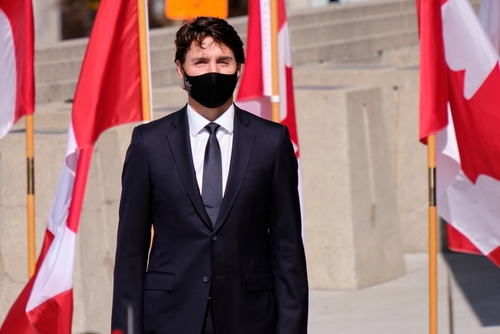Under a cloud of political pressure and waning public support, Canadian Prime Minister Justin Trudeau is reportedly on the brink of resigning as leader of the Liberal Party. Amid criticism regarding his handling of national issues, Trudeau plans to remove himself from the party’s top leadership role but intends to remain prime minister until a successor is chosen, signaling a period of political transition and potential economic challenge for Canada. What lies ahead?
Trudeau’s Reported Resignation
Prime Minister Justin Trudeau, a pivotal figure in Canadian politics for the past nine years, may soon announce his resignation. His popularity has crumbled amidst an array of political pressures, with recent reports suggesting his plans to step down from Liberal Party leadership. The timeline for his departure remains unclear, though his resignation would mark a significant shift within the party and the country’s political landscape.
Speculation about Trudeau’s imminent resignation comes as his administration faces one of its gravest political crises since his election in 2015. With recent polls showing the Liberal Party trailing behind the opposition Conservatives, Trudeau’s leadership faces unprecedented scrutiny. His approval ratings have plunged to 22%, reflecting widespread public discontent amid ongoing economic struggles, including inflation and immigration issues.
Political Challenges and Party Dynamics
The resignation of former Finance Minister Chrystia Freeland has intensified the political pressure on Trudeau. Freeland, a key cabinet member, departed while openly criticizing the prime minister’s economic policies, describing the situation as a “grave challenge.” Her departure underscores the significant internal party conflicts and pressures Trudeau currently faces.
“It’s a done deal that he’s leaving. It’s now just about how.” – government source
While Trudeau plans to vacate his party leadership role, he remains determined to stay as a caretaker prime minister until a new leader emerges, highlighting the Liberal Party’s need to swiftly organize a leadership election. This transitional period could stretch out over several months, during which the newly-elected Liberal leader must strategize for an impending general election.
Economic Concerns and National Implications
Trudeau’s resignation coincides with looming economic threats, notably the potential implications of policy changes in the United States. Anticipated tariff increases on Canadian imports by the U.S. could exacerbate Canada’s economic challenges, further complicating the national economic landscape.
As political turmoil intensifies, the opposition Conservatives under Pierre Poilievre have seen rising support. Poilievre’s promises to cut taxes and prioritize individual liberties have resonated with voters, increasing pressure on the Liberals and further cementing the Conservatives’ lead in the polls.
Sources:
Canadian PM Justin Trudeau resigns as Liberal leader, marking end of era | FOX 10 Phoenix
Canada’s Trudeau expected to announce resignation amid political crisis
Canadian PM Justin Trudeau may quit within days, say media reports
Why is Justin Trudeau Resigning? How Canada PM’s Support Collapsed – Newsweek

